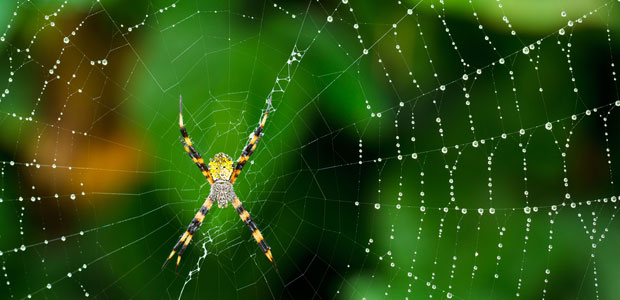Advertisement
An Arachniphobe’s Nightmare: Invasive Species Results in Spider Explosion
The loss of forest birds and some lizards on the Pacific island of Guam has significantly impacted the number of spiders found by researchers who have recently conducted a count. These bird species have been slowly wiped out following the accidental introduction, following WWII, of the brown tree snake to the island. 40% more! Researchers … Continued

The loss of forest birds and some lizards on the Pacific island of Guam has significantly impacted the number of spiders found by researchers who have recently conducted a count. These bird species have been slowly wiped out following the accidental introduction, following WWII, of the brown tree snake to the island.
40% more!
Researchers recently reported in the journal PLOS ONE that they have found an increase of spiders in the jungles of Guam of as much as 40 percent more than on nearby islands. Said the lead author of the study, “You can’t walk through the jungles on Guam without a stick in your hand to knock down the spiderwebs.”
Huge consequences
Not only has this single invasive species completely wiped out 10 species of forest birds, but it has also decimated native lizard species. The other consequences to the human population (quite aside from the ick factor of all these slithering brown serpents) have involved thousands of power outages, loss of domestic birds and pets, and venomous bites to small children.
A perfect storm
Add to this already nightmarish situation for residents of this unincorporated territory of the US (about 160,000, according to 2000 census numbers), the explosion of spider populations and you have a perfect storm: ophidiophobia meets arachniphobia! It certainly doesn’t bode well for their tourist industry.
Huge impact
All in all, it’s a huge impact from a single invasive species. And it serves as a warning for all of us. Not only do nonindigenous species—both animals and plants—get here accidentally, but they also arrive in large numbers because we keep them as pets or plant them in our gardens.
Upsetting the delicate web of our individual ecosystems this way can have disastrous—and phobia-inducing—consequences.





